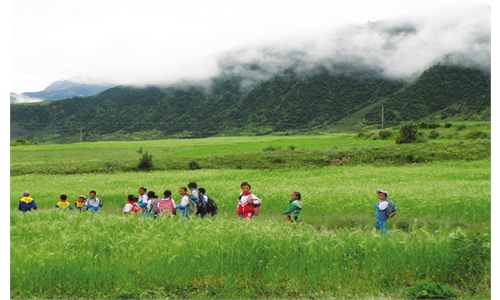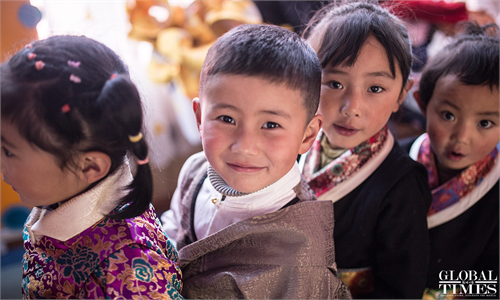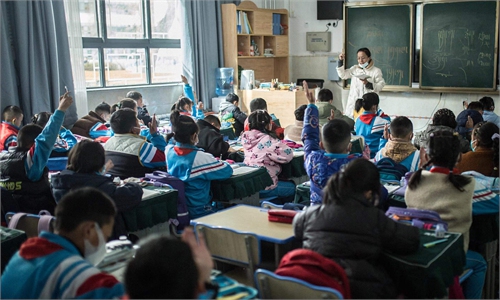Story of a serf-born Tibetan shows how Xizang experienced earth-shaking progress on democracy, human rights
Legacy of change
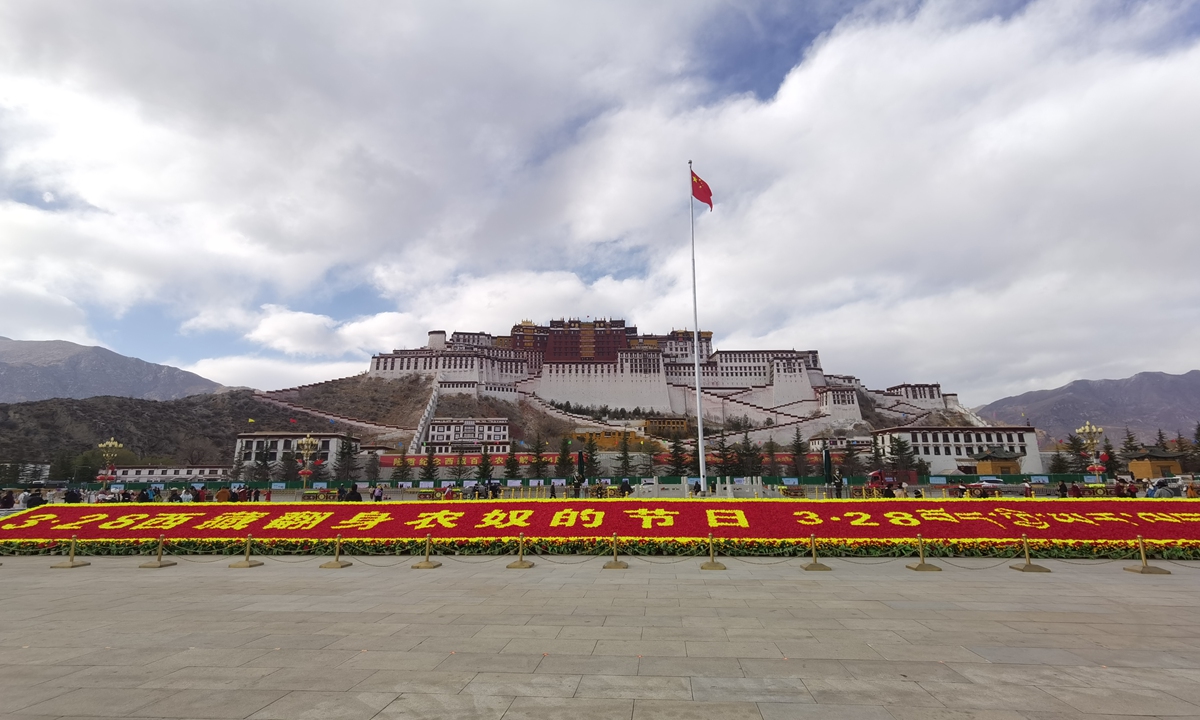
A view of the Potala Palace in Lhasa, the capital of Southwest China's Xizang Autonomous Region, on March 27, 2023 Photo: Fan Wei/GT
Editor's Note:March 28 marks the 64th anniversary of the democratic reform of the Xizang Autonomous Region in Southwest China.
In March 1959, the central government led the people in Xizang to launch a democratic reform, abolishing Xizang's feudal serfdom under a theocracy. Xizang was then able to establish a new social system that liberated the people and made them the masters of the nation and society.
In 2009, the regional legislature announced March 28 as a day to commemorate the emancipation of about 1 million serfs.
The democratic reform, which started in 1959, gave personal freedom, right to serfs' life, human dignity and value to the people, and unleashed immense and consistent productive forces for years to come. It is a historical event that all people in China should remember.
Recently, Global Times reporters talked with a serf-born man in Lhasa. His own story is a vivid illustration of how Xizang has undergone remarkable changes in democracy.
Puciren, who is now 79 years old, was born into a family of serfs in the Xigaze region of Xizang.
His parents were both impoverished serfs who had to rent a house from their landlord. As they could not afford to pay rent, Puciren's mother worked for the landlord as a "Duchung (poor serf)." She would carry out various odd tasks during the busy farming season and would give all her earnings to the landlord to pay for the rent. Meanwhile, his father was a "Tralpa (serfs bearing taxes and errands)," who had to pay the serf master with their labor.
In old Xizang, serfs were classified as "Duchung," "Tralpa," and "Nangsan (house slave)." At the time, the three major stakeholders (local officials, aristocrats, and higher-ranking lamas in the monasteries) who comprised less than 5 percent of the population held almost all of Xizang's wealth, while the remaining 95 percent of serfs and slaves struggled to survive.
The "three lords" had absolute power and the serfs and slaves were regarded as "talking livestock" and "walking tools" that could be abused at will.
"I was born in the old society and grew up under the red flag. I witnessed many of my neighbors living a life worse than that of cattle. Their suffering was something I saw with my own eyes and remembered in my heart," Puciren told the Global Times in his house which was bright with spring sunshine in northern Lhasa.
"The life of a serf was extremely difficult, not only because of the lack of food and warm clothing but also because they had no personal freedom. The lords would make them do whatever they wanted, and the serfs had to obey. They oppressed us and squeezed us dry. In their eyes, we were just animals with the ability of speech," recalled Puciren.
Puciren's childhood was marked by constant hunger and poverty. "When I was little, my mother was able to rent a room in a rich family's house where she worked. But some slaves had nowhere to live and had to live in tents or even in cowsheds."
"Some children born to slaves were born in cowsheds, and children's survival rates were quite low in old Xizang. Many newborns died," he said.
In the barbaric society of old Xizang, lords often used violent and brutal means and cruel punishment against serfs and slaves to maintain their political power.
The ruling class used both soft and hard means to subdue the serf class, including implementation of inhumane punishments such as blinding, ear-cutting, limb-chopping, tendon-snapping, and drowning.
The ruling class of landowners also enacted laws, such as the "Thirteen Code" and the "Sixteen Code," which established a hierarchy of three classes and nine levels, affirming the unequal social and political status of the serf class. The government, major monasteries, and landlords all had courts and prisons, and could even establish their own prisons on their personal estates to oppress serfs without restraint.
"When I was a child, whenever I saw people being beaten or locked up, I would fear for my own life and would hide," Puciren said. "At that time, people did not know what 'freedom' was and never could have imagined what a 'free life' would be."
According to the Tibet Museum in Lhasa, in 1959 almost all the 3.3 million acres of arable land in Xizang were owned by the ruling class.
Before 1959, the Dalai Lama himself owned 160,000 liang (one liang is equal to 50 grams) of gold, 95 million liang of silver, over 20,000 pieces of jewelry and jade articles, and over 10,000 pieces of all kinds of silks, satins and precious fur coats. His family possessed 27 manors, 30 ranches and over 6,000 serf farmers and herdsmen.
In 1959, there were 197 hereditary aristocratic families in Tibet, with each family owning from several hundred to tens of thousands of acres of land. These aristocrats enjoyed a life of ease and luxury, ordering groups of servants and slaves around, while common serfs lived in squalor and had to resort to eating moldy and smelly peas and gruel for sustenance.
The miserable serfs could only catch their breath in the long night: "Even if the snow mountain were to turn into butter, it would still be owned by the lords; even if the river water were to turn into milk, we wouldn't have been allowed a sip."
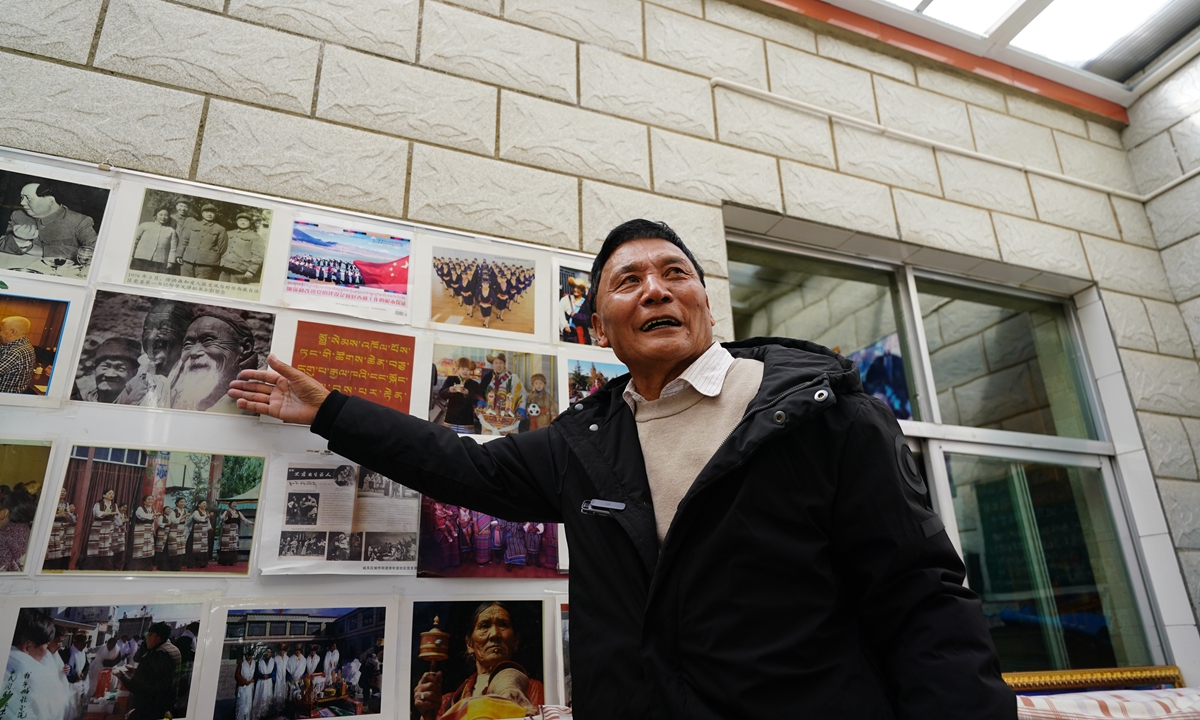
Puciren showcases historic photos of reforms and development in Xizang on March 23, 2023. Photo: Fan Wei/GT
New chapter of XizangOn May 23, 1951, an agreement on the peaceful liberation of Xizang was signed. The document, known as the 17-Article Agreement, opened a new chapter in Xizang's history.
As Puciren recalled, when the People's Liberation Army (PLA) entered Xigaze in 1951, he was only six years old. He and other children ran behind PLA trucks as they drove into the city.
"The PLA soldiers brought radios with them. We had never seen anything like it before and were curious about how this cube thing could make sound," Puciren said, fondly recounting how the soldiers held movie viewings for local people, and in particular the 1950-movie The White-haired Girl which tells the suffering of a woman in the old society. After watching it, Puciren wondered what the outside world was really like.
Soldiers once gave him a book that he has kept for over 70 years. It was the 17-Article Agreement handbook. When he went to primary and junior high school, he read it and gained a deeper understanding of how well the PLA soldiers had behaved in accordance with the agreement. "The PLA soldiers indeed did not take a single needle or thread from the people. I saw all of this with my own eyes and remembered it in my heart," Puciren said.
When Puciren was 10 years old in 1954, a rare flood occurred in Gyangze county, Xigaze. After the flood, the central government sent 800,000 silver dollars to aid in disaster relief, and the PLA soldiers brought local people rice and other staples. "All of this left a deep impression on me," he said.
On March 28, 1959, the central government announces the dissolution of then local Xizang government. People from all ethnic groups launched sweeping reforms to overthrow the feudal serfdom system.
Puciren said that in old Xizang, the serfs were taught to believe that the "three lords" supported them and provided them with food and drink. However, they later realized that it was actually the "three lords" who seized the fruits of their labor.
"If we do not work or toil, what do the 'three lords,' who only accounted for 5 percent of the total population of Xizang, eat and wear?" Puciren said. "After we realized these truths, we began to resist."
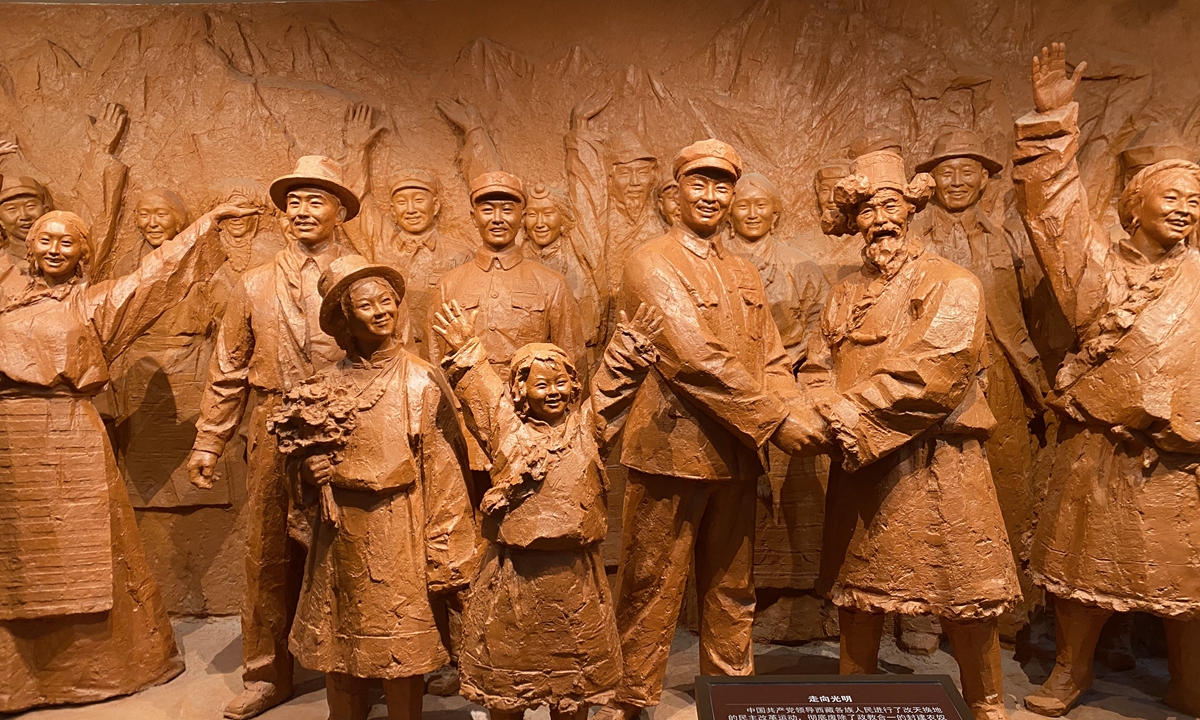
A set of sculptures depicting democratic reform in 1950s in Southwest China's Xizang Autonomous Region in the Tibet Museum in Lhasa. Photo: Shan Jie/GT
Masters of the countryDemocratic reform completely abolished the feudal serfdom of theocracy in old Xizang. Millions of serfs were liberated and, for the first time, gained the right to be human beings and became the masters of their own destinies.
"In the beginning, there were people spreading rumors that once our Tibetan children were taken to the inland region, they would never be seen again. However, that was false and the children gained a lot of knowledge in the inland schools, which changed their life. Many of them eventually became scientists, geologists, doctors, writers, and even national leaders. Without the leadership of the Party, they would have never dared to imagine all of this," Puciren said.
Recalling the changes brought about by the Communist Party of China (CPC) to the Tibetan people, Puciren said with emotion that such changes allowed the Tibetan people to gain freedom, and sincerely helped Xizang realize modernization and development.
"I remember my parents endured a lot of hardships on the long journey from Xigaze to Lhasa. Now, we take the high-speed rail, which only takes 2.5 hours," he said.
In 2002, Puciren officially retired from his job as a civil servant in Xigaze. After retirement, Puciren took advantage of his bilingual ability to spread the Party's policies to Tibetan farmers and herdsmen.
Once after his speech in Chentang town of Xigaze, an old man in his eighties told him that he had originally planned to move abroad, but after understanding the Party's policies, he finally gave up this idea.
"He told me that if he followed through with his initial plan, he would not have lived to be his current age," Puciren said. "This also reminds me of when the upper-class reactionary group in Xizang launched a rebellion in 1959, some of them also instigated us young people to flee along with them."
"At that time, there was a small group of people that was bewitched and fled with them. But many regret it; they live a very bad life, and many people expressed their desire to return," he said.
In recent years, some foreign forces have speculated that the reforms and development in Xizang is a kind of damage to Xizang, and Puciren strongly disagrees.
The Dalai Lama and his separatist followers are still blatantly claiming that there is no democracy in Xizang, but as a witness to this period of history, Puciren deeply feels the changes brought about by the CPC to the people of Xizang.
"If there was no Communist Party of China, the Tibetan people would never have been able to talk about personal freedom," he said.


